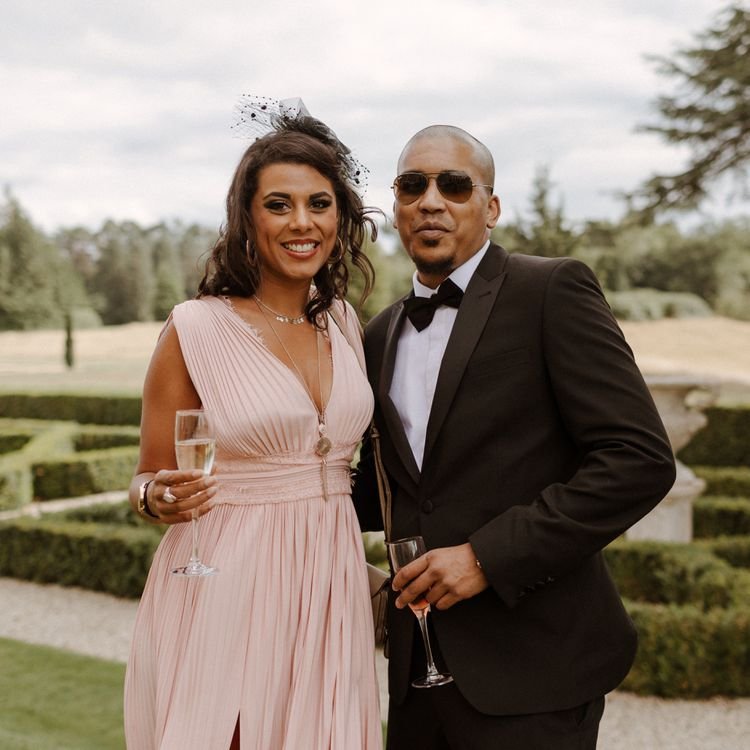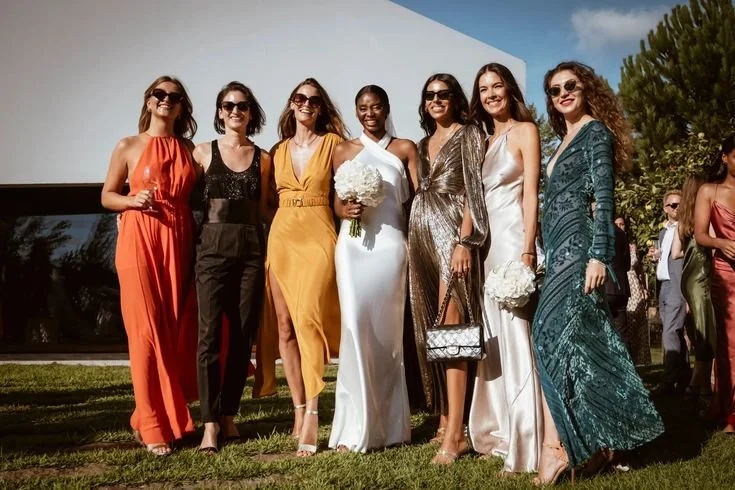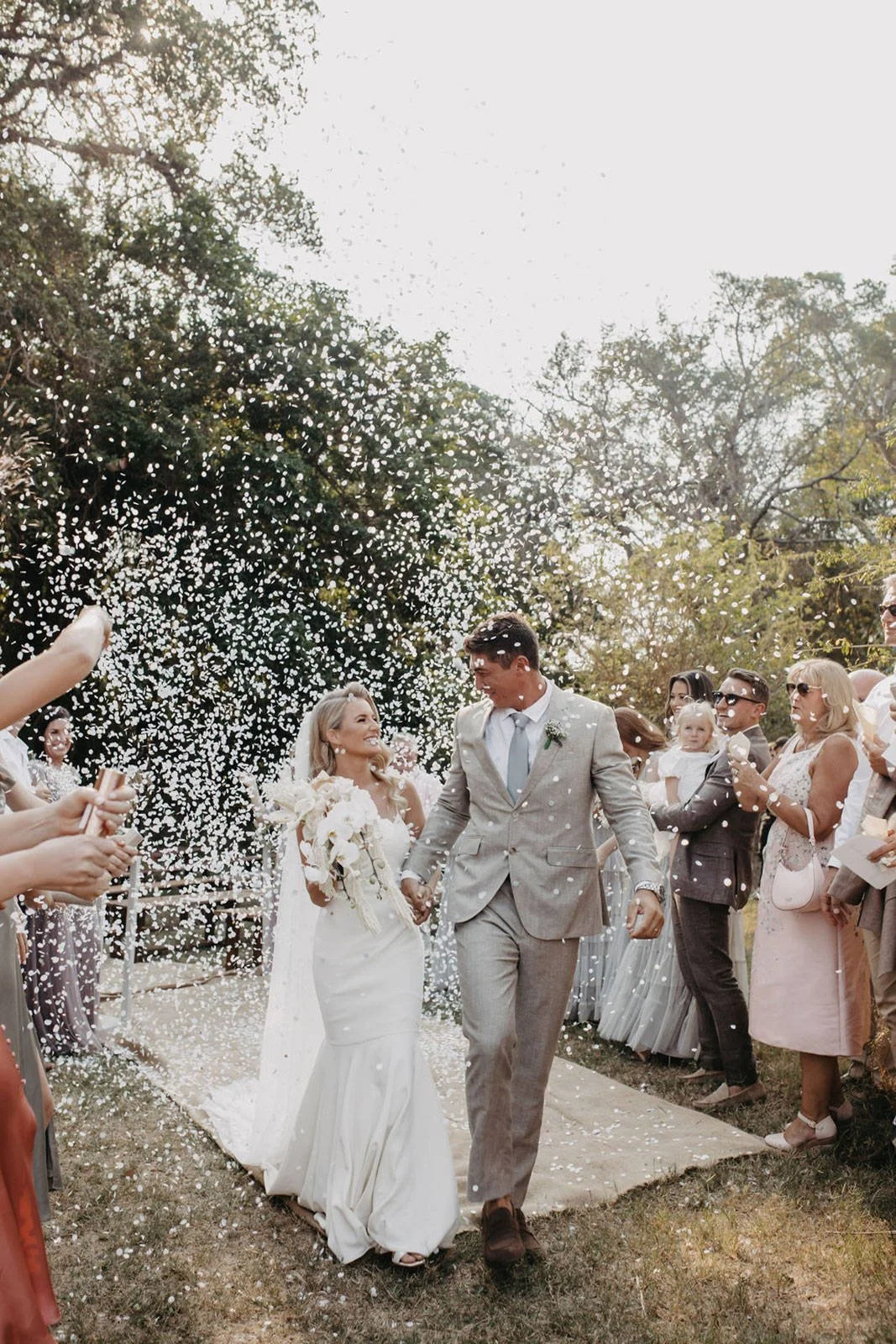The Great Plate Debate: Who's Responsible?
Photography : Randy Lawrence
Planner : Larger Than Life
Designer : Styled Divine Affairs
Wedding planning is an exciting and rewarding journey, filled with dreams of beautiful venues, stunning decor, and that picture-perfect "I do" moment. However, the process of turning those dreams into reality can be quite overwhelming, even for the most organized bride or groom. From coordinating vendors to managing guest lists, the details can quickly pile up, creating stress where there should be joy.
This is where the importance of delegating responsibilities comes in. A wedding is a monumental event, and trying to do it all alone can lead to burnout, missed details, and unnecessary anxiety. Instead of carrying the weight of every task on your own, leaning on your trusted support system—whether it be family, friends, or professionals—can make all the difference.
A wedding is one of the most significant events in a couple’s life, and everyone hopes for a seamless, joyous celebration. But behind every flawless wedding is a well-organized plan. Clear, detailed planning is essential to ensure that everything runs smoothly on the big day—from the ceremony to the reception and everything in between. Without a solid plan, even the smallest oversight can lead to unnecessary stress or last-minute chaos.In a wedding, the responsibility of providing plates can vary depending on the type of event, the venue, and the vendors involved. Here are some common scenarios for who typically brings the plates:
1. Caterer
Most Common: If you have hired a professional catering company, they will usually provide the plates, along with other tableware such as cutlery and glasses. This is often included in their overall service package, which can range from basic to high-end options.
Benefit: The caterer usually ensures that the plates match the theme of the meal and are suitable for the type of food being served, whether it’s a plated dinner or buffet.
2. Venue
If Full-Service: Some venues, especially those that offer full-service packages, provide plates, flatware, and glassware as part of their package. This is typical in hotels, banquet halls, and all-inclusive wedding venues.
Benefit: This can simplify your planning as it reduces the number of outside vendors to coordinate, and the venue typically handles the setup and cleanup.
3. Rentals from a Third-Party Company
When You Need Specific Styles: If neither the caterer nor the venue provides the style or type of plates you envision, you can rent them from a party rental company. This is common for weddings with specific décor themes that require unique or upscale table settings.
Benefit: You have full control over the style, color, and material of the plates, making it easier to match your wedding theme.
Couples: Discuss the couple's role in deciding on the type of reception (formal, casual, etc.) and how that influences plate choices.
Families: Explain how parents and extended family often play a part, especially in traditional or cultural weddings.
Vendors: Talk about the role of caterers and rental companies in providing plates and other dinnerware.
The Communication Breakdown
The lack of clear communication can easily turn a dream wedding into a stressful day full of confusion. From logistical issues with vendors to frustrated guests, the consequences of miscommunication are far-reaching. Effective, detailed communication keeps everyone on the same page and ensures that the wedding day flows smoothly, allowing the couple to focus on celebrating their love rather than managing chaos.
Feel free to drop your stories or ask any questions you have about wedding planning in the comments below. Whether you’re in the early stages of planning or in the final countdown to your wedding day, sharing your experiences can help others, and we’d love to offer advice and support where we can! Let’s keep the conversation going. 😊
Guest Fashion on Your Big Day: What Will They Be Wearing?
What will be your dress code for your big day ?
Photo: Hailey Golich
Attending a wedding is a special occasion that often comes with a specific dress code, reflecting the couple's style and the event's formality. Navigating these dress codes can sometimes be tricky, but with a little guidance, you can ensure you look your best while respecting the couple's wishes. Formal weddings typically call for elegant attire, such as floor-length gowns for women and tuxedos for men. Semi-formal or cocktail attire, common for afternoon or early evening weddings, allows for stylish dresses or dressy suits. Casual weddings, perhaps held outdoors or in a relaxed setting, offer more flexibility, with sundresses or nice slacks being appropriate. Destination weddings might suggest tropical or beach-friendly attire, perfect for the setting. It's always a good idea to consider the venue, season, and any specific instructions provided on the invitation. By paying attention to these details, you'll not only feel comfortable and confident but also contribute to the overall ambiance of the celebration.
Photo: Hailey Golich
All Black Attire Trend
All-black attire has become a popular trend at weddings for several compelling reasons. Firstly, black is universally flattering and exudes sophistication, making it a safe yet stylish choice for many guests. It allows attendees to look elegant without overshadowing the couple. Additionally, black outfits can easily be dressed up or down, offering versatility for various wedding themes, from formal to semi-formal. The rise of minimalist fashion has also contributed to the trend, with many people favoring simple, chic looks over more elaborate styles. Moreover, black attire photographs exceptionally well, ensuring guests look their best in wedding photos. Finally, wearing black can be a practical choice, as it is less likely to show stains or spills, allowing guests to enjoy the celebration worry-free. All these factors combined have cemented all-black attire as a fashionable and functional choice for modern weddings
Photo: The Curries
Formal Attire
Formal attire at weddings is a timeless tradition that adds an element of elegance and sophistication to the celebration. When the dress code is formal, guests are expected to don their finest outfits—floor-length gowns for women and black tie or tuxedos for men. This level of dress not only honors the significance of the occasion but also aligns with the grandeur often associated with formal weddings, which might be held in luxurious venues such as ballrooms, historic estates, or upscale hotels. Adhering to a formal dress code enhances the overall aesthetic of the event, creating a cohesive and glamorous atmosphere. It also shows respect for the couple's wishes and the importance of their special day. By embracing formal attire, guests contribute to the memorable and majestic ambiance that makes weddings truly unforgettable.
Photo by: B_Love_Studios
Semi Formal Attire
A semi-formal dress code at weddings strikes the perfect balance between elegance and comfort, offering guests the opportunity to look polished without the formality of black tie. For women, this typically means cocktail dresses, dressy skirts, or chic pantsuits, while men might opt for a suit and tie, but not necessarily a tuxedo. This dress code is popular for afternoon or early evening weddings, where the vibe is celebratory but not overly formal. Semi-formal attire allows for personal expression through style and color while maintaining a level of sophistication that aligns with the event's importance. It’s a versatile option that can adapt to various settings, from garden ceremonies to stylish urban venues, ensuring that guests feel both stylish and appropriately dressed for the occasion.
Photo : Merlot Photography
In conclusion, understanding and adhering to the dress code for a wedding is essential for both honoring the couple's wishes and ensuring you feel confident and appropriate for the occasion. Whether the event calls for formal, semi-formal, or casual attire, choosing the right outfit helps contribute to the overall ambiance and theme of the celebration. As trends evolve, such as the growing popularity of all-black ensembles, it's clear that personal style can still shine within the guidelines provided. By considering the venue, season, and any specific dress instructions, guests can effortlessly blend their own fashion sense with the event's tone, making the wedding a truly unforgettable experience for everyone involved.







